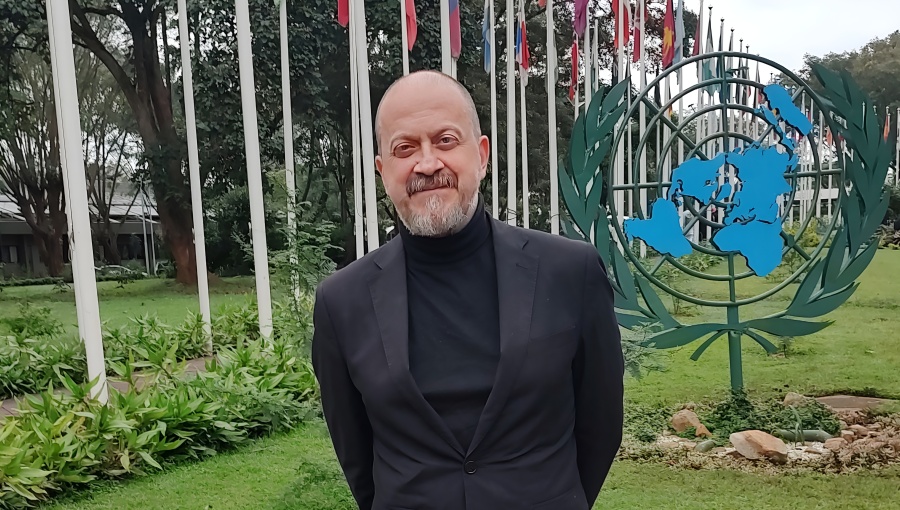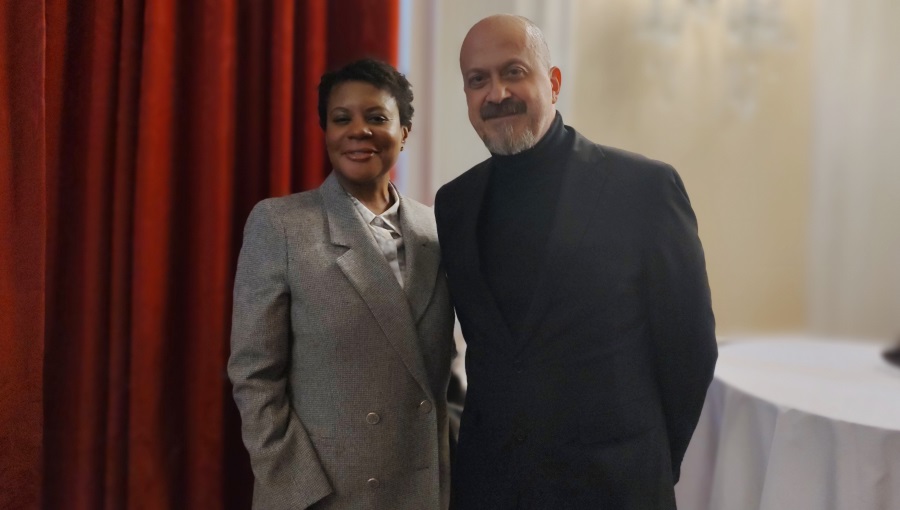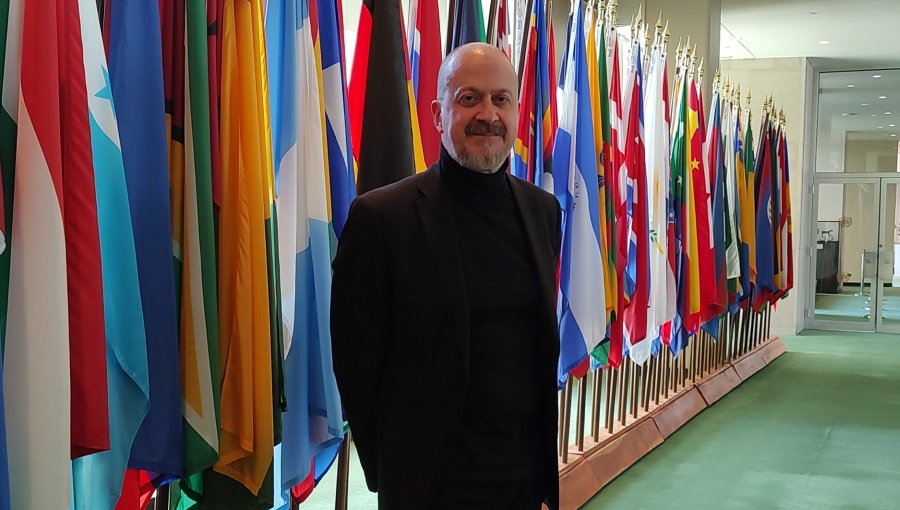Institute of Future and Innovation Studies Participates in Messina/Taormina Conference
Francesco Lapenta, Founding Director of the JCU Institute of Future and Innovation Studies participated in “The Messina/Taormina Conference: The Future of Europe in the 21st Century,” held from October 2 to 5, 2020.
First held in 1955, the Messina/Taormina Conference saw the participation of the six-member states of the European Coal and Steel Community (ECSC), namely, Netherlands, Italy, Luxembourg, France, Germany, and Belgium, whose meeting led to the creation in 1957 of the European Economic Community (EEC) and the European Atomic Energy Community (Euratom). The 2020 edition of the conference aimed at looking at the state of the union and the challenges it faces especially in the wake of the Covid-19 pandemic and the ensuing dramatic economic and political crises that Europe and the rest of the world are currently facing.
The European Union, already in crisis, is being forced by current events to radically reconsider its nature, the methods through which it is crafted, and its institutions that need to be capable to adapt to the complexity of the 21st century. For these reasons, “Vision” (a think tank committed to strategic thinking), “Taobuk” (Taormina Book Festival) and the Università di Messina have organized a two-day conference in Taormina where “thirty visionary intellectuals, policymakers, journalists, writers, artists, philosophers and historians” gathered to discuss how to respond to these challenges, and revive the impulse of the European Union.
Loosely inspired by ten ideas crafted by “Vision” to trigger the debate, the conference featured plenary sessions and three working-groups. It included presentations and discussions with experts and some of the greatest witnesses of the European project. Francesco Lapenta introduced one of the three Working Groups, “Information is Power. A Policy on Global Digital Platforms” and led the team’s work together with Carlos Moedas and Paola Bonomo.
The group discussed issues related to the collection of data and described the capacity of collecting and using personal data as a form of power. Data brokers, such as big social media platforms, should then be conceived as alternative emerging forms of transnational and nation power. According to the working group, one of the core missions of the European Commission is to counteract these power dynamics by implementing a strategy that treats and regulates these digital infrastructures as quasi-utility platforms that need to become democratically accountable. The strategy would equip, both technologically and in terms of awareness and skills, firms, and citizens who would then be able to share the value generated by their data.
The group also discussed the importance of public financing of innovation in the EU, which although widely recognized, remains unfulfilled when compared to the strategy of other governments, and the EU’s efforts to support economic growth and new job creation. The forthcoming European Innovation Council (EIC), currently in its pilot phase, is a practical example of the EU’s innovation policy introduced by the European Commission to support the commercialization of high-risk, high-impact technologies in the EU.
The discussion included the future model for innovation that, in the view of the European Commission, will be based on collaboration between government, the private sector, the non-profit sector, supranational organizations, and fundamental science. The group agreed that in this context, the EU’s innovation policy should place education at its heart, fostering, as technologies keep evolving, continuous learning, and an innovation-oriented mindset among both educators and students. The group suggested that EU institutions such as the EIC need to choose challenges linked to concrete societal problems and missions and that schools and universities need to develop educational and research programs that promote a science-based, technological, and entrepreneurial culture.
The list of participants in the Messina and Taormina events included:
Stefania Giannini (Assistant Director for Education, UNESCO and former Minister for Universities, Research and Education in Italy),
Bill Emmott (Author of the Fate of the West and former editor of The Economist),
Paolo Gentiloni (European Commission for Economy and Former Prime Minister of Italy),
Giuliano Amato (Judge of Italy’s Constitutional Court, Former Prime Minister and Former Vice President of the Convention on the Future of Europe),
Romano Prodi (Former Prime Minister of Italy and Former President of the European Commission),
Mario Nava (European Commission DG REFORM – Director-General),
Sebastien Maillard (Directeur Notre Europe, Institut Jacques Delors),
Luciano Fontana (Editor of Corriere della Sera),
Raffaele Stancanelli (Member of the European Parliament),
Nicola Saldutti (Corriere della Sera),
Francesco Grillo (Director of Vision),
Francesco Lapenta (Founding Director of the John Cabot University Institute of Future and Innovation Studies),
Carlos Moedas (Former European Commissioner for Research, Science and Innovation and Member of the Advisory Board of the “Futures of Education” Initiative),
Paola Bonomo (Former Principal McKinsey, Vice Chair Italian Angels for Growth),
Sandro Gozi (Former Italian Minister for European Affairs and member of the European Parliament elected in France),
Kalypso Nicolaidis (St. Anthony’s College, Oxford University),
Alessandro Morelli (University of Messina),
John Hooper (Italy and Vatican correspondent of The Economist),
Michele Geraci (New York University and head of Italy – China workforce),
Elizabeth Strout (Pulitzer Prize winner 2009),
Viviana Mazza (Corriere della Sera)
Alexandra Borchardt (Head of Digital Journalism Fellowship Hamburg Media School, Senior Research Associate, Reuters Institute for the Study of Journalism, University of Oxford),
Natalie Nougairede (The Guardian and Former Editor of Le Monde),
Lorenzo Fioramonti (MP, Italian Chamber of Deputies and Italy’s Former Minister for Schools, Universities, and Research),
Annie Ernaux (European Strega Prize 2016)






